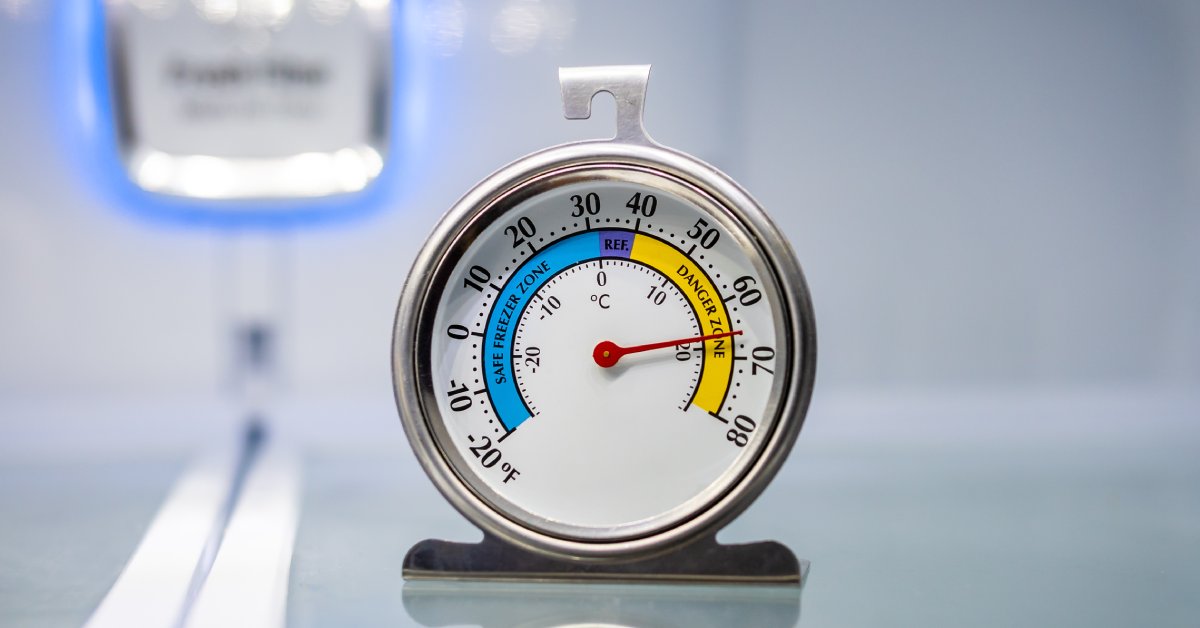1st Nov 2024
Why Temperature Control Is Essential for Refrigeration
Temperature control is critical for refrigeration systems in commercial kitchens, food storage facilities, and medical environments. Maintaining the correct temperature ensures the longevity of stored products and guarantees compliance with safety standards.
The consequences of improper temperature control can be disastrous, especially in environments that store perishable food, pharmaceuticals, and vaccines. Temperature control is essential for refrigeration because it safeguards product integrity and minimizes losses.
The Importance of Precise Temperature Regulation

Accurate temperature regulation helps products within a refrigeration unit remain in optimal conditions. Even minuscule fluctuations can negatively affect the quality and safety of stored items.
For example, perishable food stored at temperatures above safe thresholds can spoil and become unsafe for consumption. Certain vaccines and medications must remain within a narrow temperature band to maintain effectiveness. Without temperature regulation, spoilage or degradation can occur, affecting the bottom line of businesses and endangering consumers.
Temperature-sensitive products demand precise, regulated environments. A well-maintained system protects the preservation of everything, from fresh produce to life-saving vaccines.
Consequences of Poor Temperature Control
Inadequate temperature control can cause financial losses for businesses. Spoiled food or compromised medical supplies waste resources and damage a company’s reputation. Poor refrigeration practices can also result in regulatory fines, particularly in healthcare and food services.
For example, restaurants and grocery stores must store food at specific temperatures. Deviations can lead to spoilage, potential health code violations, hefty fines, or shutdowns. In extreme cases, businesses could face lawsuits due to negligence if customers experience harm from consuming improperly stored food.
How Refrigeration Systems Maintain Quality
Refrigeration units keep products within a specific temperature range, reducing the speed of bacterial growth and spoilage. Advanced refrigeration systems have sensors and alarms to monitor temperature changes.
Refrigeration also plays a role in the food supply chain. From the moment food leaves the farm until it reaches the consumer’s plate, it must remain at the right temperature to retain its nutritional value, freshness, and safety.
In the medical field, many medications, including insulin and vaccines, rely on refrigeration to maintain efficacy. By controlling temperature, refrigeration units preserve the quality and extend the shelf life of these products.
How To Monitor Temperature in Commercial Refrigerators
Purchasing agents and inventory buyers should find tools that monitor temperature within commercial refrigeration units. Here are several tools and best practices that help the temperature remain within an acceptable range.
- Most commercial refrigerators have built-in thermometers. Consistently checking these readings will ensure their accuracy. Supplementing the built-in thermometers with separate, calibrated devices can offer a backup in case of malfunction.
- Temperature loggers record and store temperature data over time. They can provide a history of temperature readings, which are useful for detecting trends or identifying fluctuations.
- Modern refrigeration systems have alarms that trigger when the temperature deviates from the desired range. You can receive these alerts via email or SMS, helping you address the issue promptly.
- Despite the reliability of automated systems, you should continue to do routine manual temperature checks. Having your staff regularly check and record temperatures will prevent small issues from snowballing.
By utilizing these tools, business leaders can maintain optimal temperatures inside their refrigeration units, protecting the products they store.
The Role of Temperature in Food Safety
Temperature control is crucial for food safety. Bacteria grow rapidly in certain temperature ranges, particularly between 40 and 140 degrees Fahrenheit, commonly called the “danger zone.” Food stored in this temperature range for prolonged periods becomes unsafe for consumption, leading to spoilage and the growth of bacteria that cause foodborne illnesses.
Refrigeration slows bacterial growth and reduces the risk of food poisoning from consuming affected foods and drinks. Keeping perishables—meat, dairy, and produce—at temperatures below 40 degrees Fahrenheit is essential for preventing contamination. Purchasing agents and inventory managers in the food industry must prioritize refrigeration systems that maintain consistent, safe temperatures for their products.
Temperature Control in the Pharmaceutical Industry

Temperature control is also vital in the pharmaceutical industry. Many medications, vaccines, and biologics require storage within specific temperature ranges to maintain their potency and safety. For example, COVID-19 vaccines require ultra-cold storage, highlighting the importance of reliable temperature-controlled environments.
Without temperature control, medications can become ineffective or dangerous. Companies invest heavily in refrigeration systems that offer precise control and monitoring due to the sensitive nature of pharmaceuticals. Purchasing agents in this field should find refrigeration systems that meet regulatory standards and contain the latest technology to monitor temperature control.
Energy Efficiency and Temperature Control
Maintaining optimal temperatures in refrigeration units is essential for product safety and energy efficiency. Commercial refrigeration systems that frequently fluctuate in temperature consume a lot of energy and struggle to maintain the correct environment. Increased consumption leads to higher energy bills and a larger environmental footprint.
Purchasing energy-efficient refrigeration systems that maintain steady temperatures reduces costs. These systems have energy-saving features, such as variable speed compressors, which adjust cooling based on the refrigerator’s load and temperature. By investing in energy-efficient units, business leaders can maintain product quality and keep operational costs low.
Temperature Fluctuations and Their Impact
Fluctuations in temperature can profoundly impact the quality of stored goods. Even a brief rise in temperature can cause bacteria to proliferate in food or compromise the efficacy of medical products. These fluctuations can occur due to power outages, equipment malfunctions, or human error.
Purchasing agents and inventory buyers should prioritize refrigeration systems with backup power options and advanced alert systems. Monitoring temperature stability and addressing fluctuations can mean the difference between retaining or losing valuable inventory.
Technology’s Role in Temperature Monitoring
Modern technological advancements have made temperature monitoring more accurate and accessible. Smart refrigeration systems with wireless sensors, data logging capabilities, and real-time alerts support continuous monitoring from remote locations. These systems offer purchasing agents and inventory managers greater peace of mind, knowing they can immediately detect and resolve temperature deviations.
The implementation of IoT (Internet of Things) technology has revolutionized temperature control, enabling automated temperature adjustments and predictive maintenance. As a result, refrigeration systems can self-regulate, reducing the likelihood of costly breakdowns.
Recorders Charts & Pens: Providing Reliable Recording Solutions
Learning why temperature control is essential for refrigeration is crucial for professionals in the food and healthcare industries. The stakes are high, and business owners and managers must invest in reliable refrigeration systems to protect their inventory and consumers’ health.
When purchasing these systems, remember the importance of tracking refrigeration data over time and securing necessary supplies. At Recorders Charts & Pens, we carry chart recorder paper supplies to help you maintain reliable records of temperature readings.
Our products are the building blocks for businesses that rely on data recording. Visit our website to learn how we can help your business monitor its refrigeration systems.

